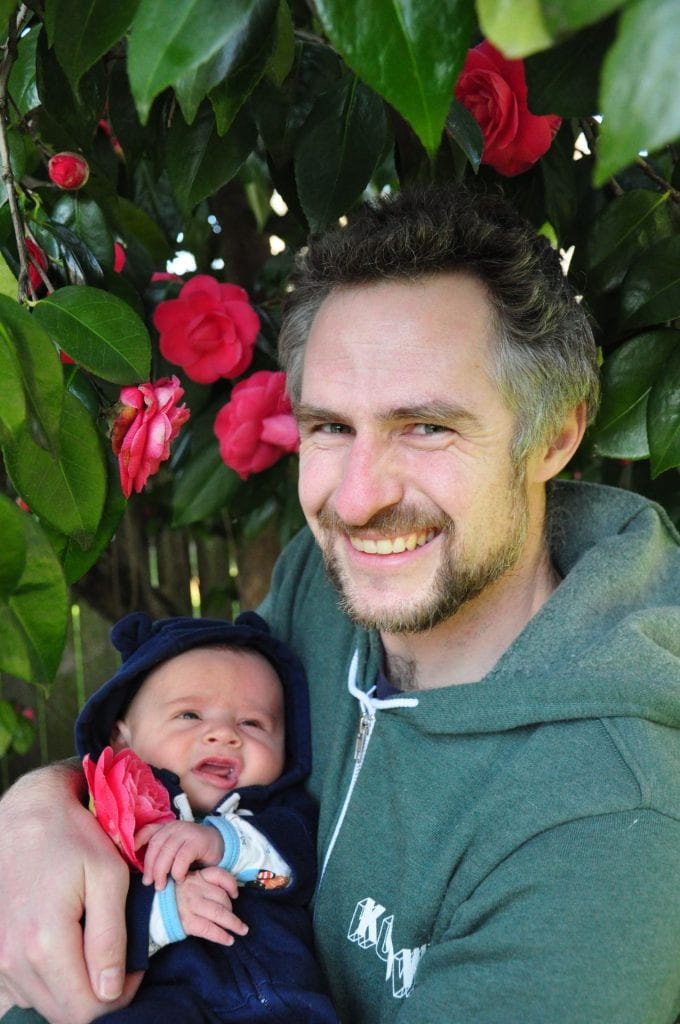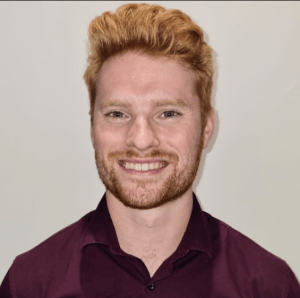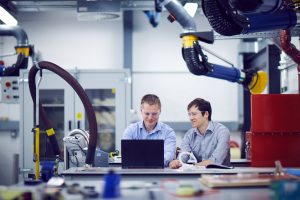Why did you choose the Bristol Composites Institute for your studies?
It was a confluence of a few factors. My now-wife, then-girlfriend, Ariel, chose to pursue a higher degree at the Courtould Institute of Art in London. Meanwhile, I had been fortunate enough to write and receive a grant to study thermally-actuated morphing structures from the European Office of Air Force Research and Development. I could take myself and this grant to any European university, but it was the world-renown expertise of Drs. Weaver and Pirrera, and their warm invitation, that focused my attention on Bristol.

I recall my first visit to the UK, on summer scouting holiday. I borrowed Ariel’s old commuter bike from her East end flat and set off for Paddington, and not long after found myself cranking with all my might up the steep hills that led to the Queen’s building. After a quick breather, and a warm welcome from Jo Brooks and Dr. Weaver, it was off to see the laboratory facilities. I was impressed. Never before, and never since, have I experienced a lab in which the researcher was so well equipped to conduct their work unhindered. There was most everything one needed to fabricate, test, inspect, measure, and generally get into the right kind of trouble that breeds discovery. Best of all, the kit was all shared, and no political manoeuvring and horse-trading was required to use some instrument that technically might have been owned by someone else’s professor. (You folks don’t know how good you have it!)
Finally, it was Bristol, the wonderful city, that cemented my decision. There will always be a place in my heart for the city that I called home for six wonderful years of a young American’s adventure abroad.
What research area did you specialise in whilst you were here?
My research aimed to create composite structures which changed shape in response to temperature change. But unlike the simple bimetal strips that make your meat thermometer dial spin around, I wanted to have these structures be inert to temperature change for some prescribed temperature change, and then suddenly snap into their new shape at a specified triggering temperature. t’s a bit like trying to combine the classic bitmetal strip with a bistable snap-bracelet. That nonlinearity was needed to make them useful for gas turbine cooling control and other passive control applications.
It was easy to make something bistable, but much harder to get the plate or whatnot to pop into it’s new shape due to temperature change alone. We cracked the problem by laminating parallel UD plies against a high-expansion metal like aluminium, and then curing the laminate to a pre-curved shape. I’ll never forget the feeling of “we’ve done it!” when we heard the plate go “poing!” all on it’s own, as it snapped into it’s new shape as we heated it in the oven. An entertaining activity was to take the warm plate from the oven, slip it under a hapless researcher’s desk, ideally seeking out a jumpy fellow deeply engrossed in work. The plate would cool off and go “poing” again, to the delight of anyone observing the little prank.
After leaving the BCI where did you go?
I was lucky enough to get my CV to Blue Origin, just as they were starting on the design of what would become their New Glenn orbital launch vehicle. I was hired as a structural design engineer, and had a small hand in many of the composite and metallic structures on the 2nd stage and payload fairing. As I tell my nieces and nephews when they ask what it is that I really do, “I draw pictures of rockets and then we go build them!”
What are you currently working on and what do your future plans look like?
I’m currently on a great team working out the best structure and propellant tank architecture of a follow-on upgrade to the New Glenn launch system. I’m also a new dad, and my biggest future plan is to have as much fun as I can making my kid’s life awesome.
How did the BCI prepare you for work outside of academia?
Like any good PhD program, BCI, or DTC as it was called then, gave me great resources and great independence. It was clear that the onus was on me, and me alone, to define what I wanted to do, and drive my own work forward. I think if I had missed out on this formative experience, I might have never discovered some of the career-forming tricks that brought me to where I am. My favourite: Focus your best efforts on what you’re most passionate about, and eventually you’ll find people who pay you for it. Also known as, “The harder you try, the luckier you get.”






